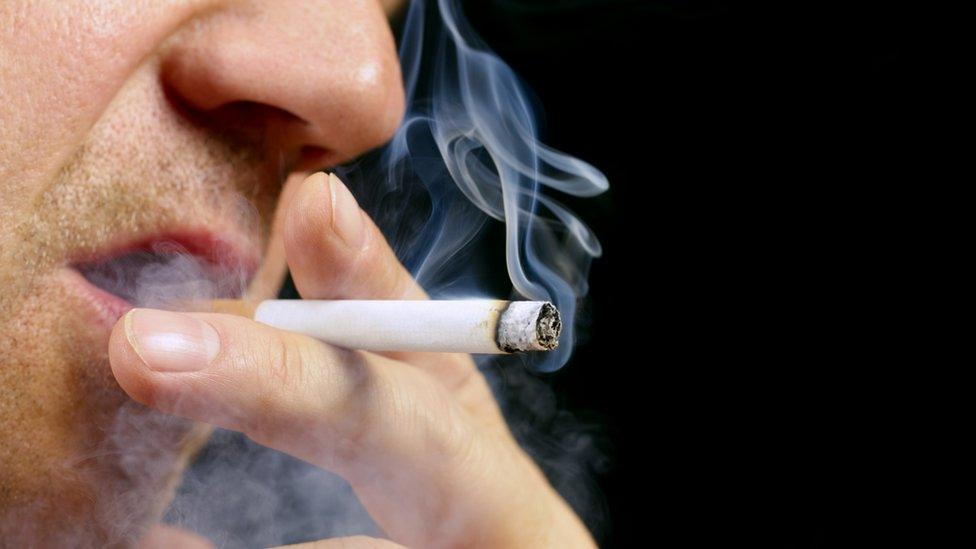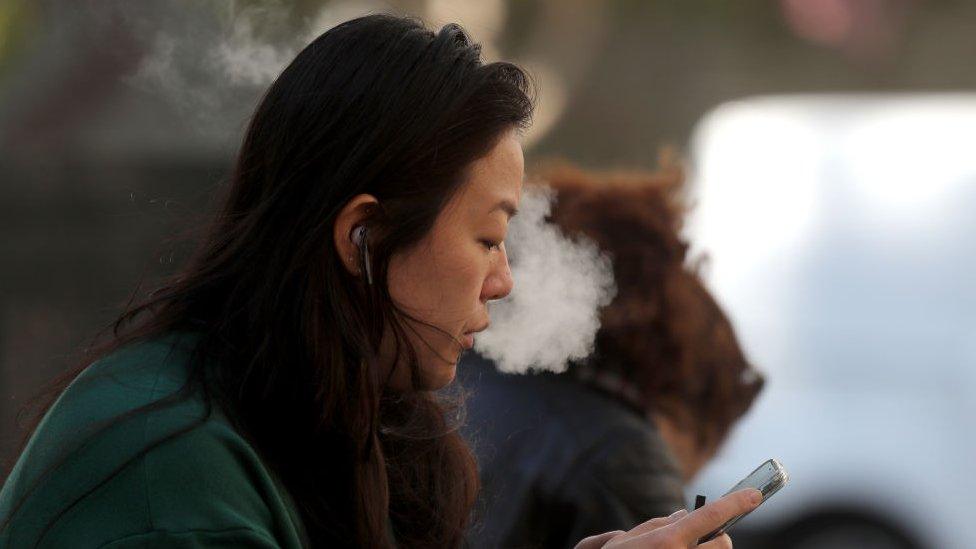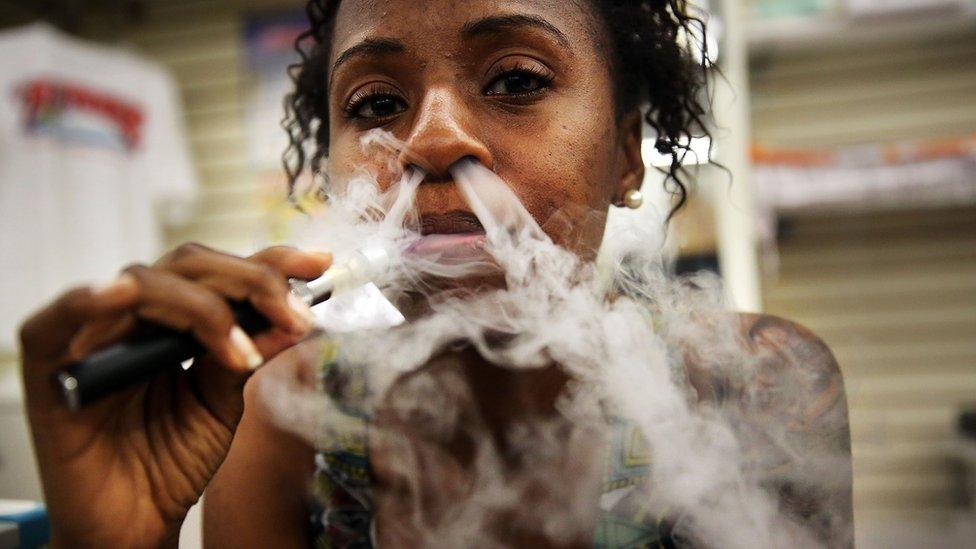White House unveils plans to reduce nicotine in cigarettes
- Published

The amount of nicotine in cigarettes sold in the US is set to be reduced to minimal or non-addictive levels.
The White House on Tuesday unveiled the plans which could dramatically reduce cancer deaths - a goal of President Joe Biden's administration.
But the measure is likely to face opposition by the tobacco industry.
Smoking remains the US's leading cause of death, accounting for 480,000 every year, according to the Centres for Disease Control and Prevention (CDC).
Nicotine is a highly addictive "feel good" chemical in tobacco products.
In a statement, the US Food and Drug Administration (FDA) said that plans for a proposed product standard would establish a maximum nicotine level in cigarettes and "finish" some other tobacco products.
"Making cigarettes and other combusted tobacco products minimally addictive or non-addictive would help save lives," FDA Commissioner Dr Robert M Califf said.
Dr Calif added that lowering nicotine levels may decrease the likelihood that young people become addicted to cigarettes and help current smokers quit.
In 2020, an estimated 30.8 million adults in the United States smoked cigarettes. The US Surgeon General estimates that 87% of adult smokers begin by the time they turn 18.
The initiative comes after the Biden administration in February set goals of reducing the cancer death rate by at least 50% over the next 25 years, as part of his Cancer Moonshot campaign.
But experts say it could take at least a year for the Food and Drug Administration (FDA), which regulates cigarettes, to issue a proposed rule which could then be delayed by opposition, according to the Washington Post, external.
It added the tobacco industry, which is likely to be fiercely opposed to such a big change in products, could challenge a final regulation in court.
Related topics
- Published13 October 2021

- Published25 June 2019

- Published22 February 2019
